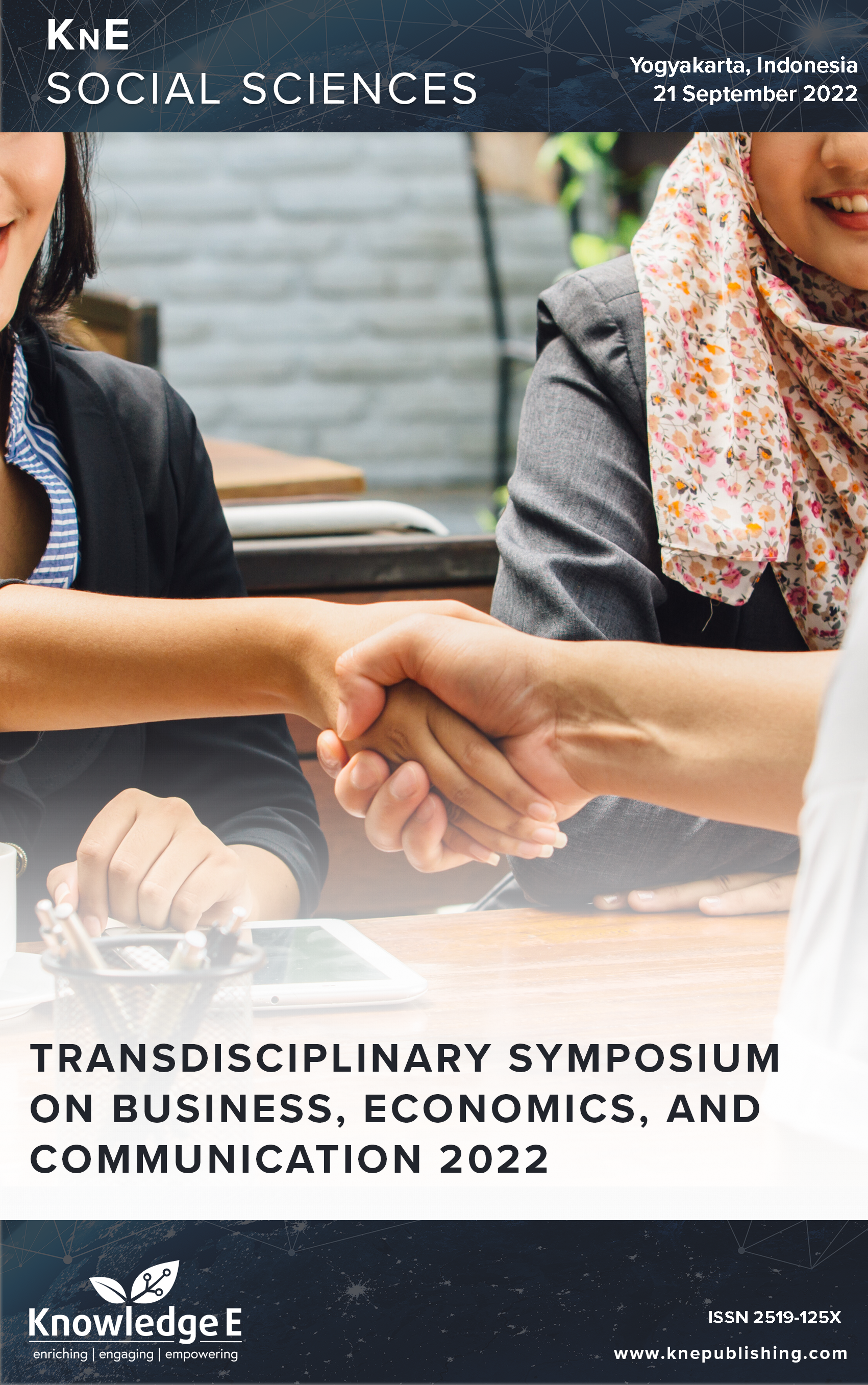The Spiritual's Post-Covid Asnaf Entrepreneurs Toward Zakat on Business
DOI:
https://doi.org/10.18502/kss.v8i12.13713Abstract
This study assesses the spiritual’s post-covid Asnaf entrepreneur’s toward zakat on business. It indicated the new insight of Asnaf entrepreneur’s spirituality after covid. After participating in the AEP, Asnaf became the zakat payer and directly will be give the positive effect to zakat collection. However, many small businesses, especially business from Asnaf entrepreneurs are financially fragile because of Covid- 19 challenges. To meet the challenges posed by the Covid-19, the Asnaf entrepreneurs had to react in agile and decisive ways by relating the spirituality toward business and able to maintain as the zakat payer soon. This involves conducting an after-action review in spiritual by lessons learned from the pandemic and enhance the business value. Therefore, in this paper, we explore the Spiritual’s Asnaf entrepreneurs toward zakat on business after facing the Covid-19. The analysis was performed to examine the reliability and validity of the measurement, and the structural equation modelling techniques (SEM). Spiritual among Asnaf entrepreneur’s toward zakat on business after Covid-19. Hence, the study provides an insight to zakat institution that the Covid-19 seek out the opportunities emerging in the recovery and stability return by move to digitalization business.
Keywords: asnaf, entrepreneur, spiritual quotient, post covid
References
[2] Ab Rahman A, Basah MY, Nooh MN, Abdullah M, MohdFauzi AA, Bakar MF. Memformulasi model produktif pembangunan program usahawan bagi memperkasakan ekonomi golongan Asnaf. Prosiding PERKEM Ke-9 (2014). 2014:191-198.
[3] Halim HA, Said J, Yusuf SN. Individual characteristics of the successful asnaf entrepreneurs: Opportunities and solutions for zakat organization in Malaysia. International Business and Management. 2012 May 31;4(2):41-49.
[4] Fallah V, Khosroabadi S, Usefi H. Development of emotional quotient and spiritual quotient: The strategy of ethics development. International Letters of Social and Humanistic Sciences. 2015 Mar 10;49:43-52.
[5] Rudnyckyj D. Spiritual economies: Islam, globalization, and the afterlife of development. Cornell University Press; 2011 Jun 15.
[6] Rahman ZA, Shah IM. Measuring Islamic spiritual intelligence. Procedia Economics and Finance. 2015 Jan 1;31:134-139.
[7] Hoque N, Khan MA, Mohammad KD. Poverty alleviation by Zakah in a transitional economy: A small business entrepreneurial framework. Journal of Global Entrepreneurship Research. 2015 Dec;5:1-20.
[8] Lembaga Zakat Selangor, Types of Zakat Recipients. 2016. Retrieved from https://www.zakatselangor.com.my/informasi/laporan-aktiviti-zakat/
[9] Zohar D. Spiritually intelligent leadership. Leader to leader. 2005 Sep;2005(38):45- 51.
[10] Srivastava A, Misra S. Is spriritual quotient a beter tool of success: Spirituality in the new world order. Excel International Journal of Multidisciplinary Management Studies. 2012 Jan 1;2(1).
[11] Soebyakto B, Ming C. An empirical testing of intelligence, emotional and spiritual quotients quality of managers using structural equation modeling. International Journal of Independent Research and Studies. 2012;1(1):1-2.
[12] Bagheri H, Kadkani M, Kordestani S. Study the relationship between spiritual quotient and entrepreneurship in Islamic Azad University of Mashhad. International Journal of Mathematics. 2012;3(9).
[13] Mustaffa CS, Omar N, Nordin MZ. Antesedan kecerdasan emosi, kecerdasan spiritual dan kecerdasan emosi spiritual (ESQ) dalam kalangan pelajar sekolah berasrama penuh dan institusi pengajian tinggi. Journal of Techno-Social. 2010;2(2):82-98.
[14] newss.statistics.gov.my. Statistics. 2010. Retrieved from https://newss.statistics.gov.my/newss-portalx/ep/epLogin.seam
[15] Saunders M, Lewis P, Thornhill A. Research methods for business students. Sixth edit. Pearson education; 2012.
[16] Mugenda OM, Mugenda AG, Research methods: Quantitative and qualitative approaches. Nairobi: Acts press; 2003.

